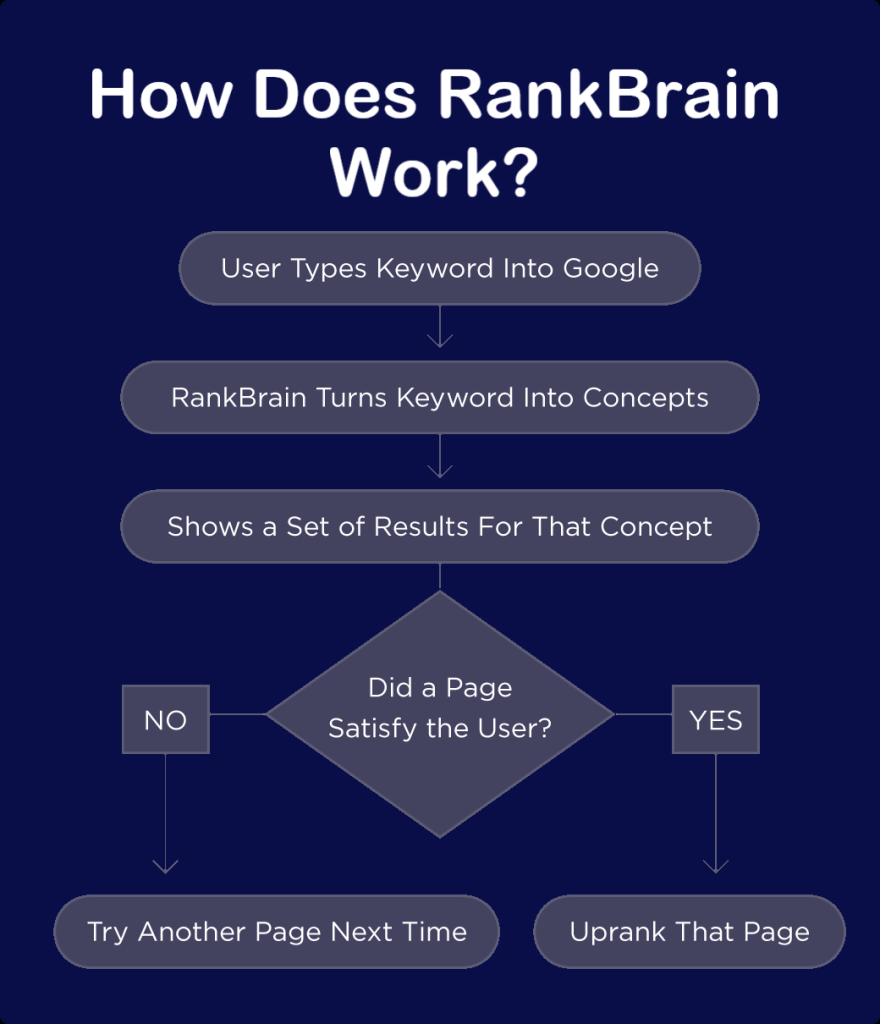The world’s most popular search engine, Google uses algorithms to deliver relevant results. These algorithms, persistently changing and being improved, significantly affect the rating of websites in search engine results pages (SERPs). This article will explore several noteworthy Google algorithms that shape search rankings.
Page Contents:
What is Google Search Algorithm?
Google Search Algorithm is the process used by Google to rank content. The algorithm is subject to continuous change after a certain interval, with over two hundred ranking factors in the system. The updates are released on average six times per day. Google incorporates different algorithms and a plethora of ranking factors to display websites on SERPs. The ranking system is made up of multiple algorithms that incorporate elements like quality, relevance, and usability.
How does Google Search Algorithm work?
Major factors that affect Google Algorithms are:
Search intent
To display relevant results, Google must know what the user is looking for and the query’s search intent.
Page relevance
Next, the search engine examines which pages are relevant to the search query. Through crawling and indexing, Google analyses the site content that best matches the users’ query.
Content quality
With millions of pages on the web, Google prioritizes pages that demonstrate expertise, trustworthiness, and authoritativeness.
Usability of pages
It takes into account technical aspects that include page responsiveness, page speed, website security, and appearance.
Context
Search results are also influenced by demographics such as location, history, and search settings.
Various Google Algorithms for search ranking
Google Panda
First introduced in 2011, Google Panda strongly emphasizes content quality and penalizes websites with thin, duplicated, or poorly written content. The Panda algorithm evaluates factors such as content uniqueness, relevance, authority, and user experience. Websites offering high-quality, original, and engaging content are rewarded with improved rankings, while those with low-quality content experience a decline in search visibility.
To enhance your website’s ranking under Panda, prioritize the creation of original, informative, and user-centric content. Eliminate duplicate content, optimize page load times, and ensure a positive user experience to avoid Panda penalties.
Google Penguin
Launched in 2012, Google Penguin primarily targets websites that engage in manipulative link-building practices. It penalizes websites that violate Google’s guidelines by participating in link schemes, spammy link exchanges, or purchasing links solely to boost search rankings.
To avoid Penguin penalties, focus on building high-quality, natural links from reputable and relevant websites. Employ ethical SEO practices, such as creating valuable content, earning links through outreach and relationship building, and refraining from excessive use of keyword-rich anchor texts.
Google Hummingbird
Introduced in 2013, Google Hummingbird aims to enhance the search engine’s understanding of user intent and the semantic meaning behind search queries. It emphasizes the significance of context and strives to provide more accurate search results.
Hummingbird focuses on conversational search queries and long-tail keywords, comprehending the relationships between words and the context of the entire search query. To optimize for Hummingbird, concentrate on generating content that addresses specific questions and provides comprehensive information related to the user’s query.
Google RankBrain
RankBrain, unveiled in 2015, is a machine learning algorithm that assists Google in comprehending the meaning of ambiguous search queries. It analyzes and interprets complex search queries to provide relevant results, even for queries it has not encountered before.
RankBrain employs artificial intelligence and natural language processing techniques to map the relationship between words and concepts. To optimize for RankBrain, develop high-quality content that aligns with user intent and incorporates relevant keywords organically.
Google BERT
BERT (Bidirectional Encoder Representations from Transformers) is another algorithm introduced by Google in 2019. Its purpose is to enhance the understanding of complex and context-dependent search queries by focusing on the meaning of individual words within the context of the entire search phrase.
BERT enables Google to comprehend nuances such as prepositions, pronouns, and other words that significantly influence the meaning of a search query. To optimize for BERT, create content that offers clear and concise answers to user queries and prioritizes user intent.
Google’s algorithms are updated daily and important changes are released two to three times a year that can greatly impact a page’s ranking. Google search algorithms play a crucial role in determining the visibility and ranking of websites in search results.
Through knowledge of algorithms like the Panda, Penguin, Hummingbird, RankBrain, and BERT, website owners and SEO professionals can form successful strategies to advance their search rankings. The key is to generate original content, focus on user intent, construct natural and authoritative links, and give a great user experience. Keeping up with Google’s ever-evolving algorithms is critical to stay seen and build visibility in the ever-evolving digital world.



